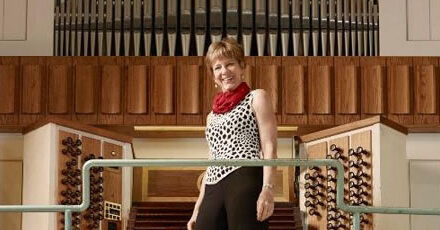On November 8, tenor Jerry Hadley appeared on the Duke Artists Series. Hadley, known as “Bernstein’s tenor” because of frequent appearances in the title role of Candide (thanks to his recording and telecast of the work, led by our great American maestro) is a good all-’round singer. His program, presented in Page Auditorium, reflected his abilities-and his shortcomings-well. He began with a recitative and aria from Mozart’s Idomeneo, an opera that hasn’t been presented here and that therefore may be counted as the evening’s “rare and unusual” work. That’s important, for the rest of his recital involved far more familiar fare. A Strauss group went well, and some light Italian fare – songs, mostly, by Mascagni, Pietri and Rossini – proved refreshing enough, despite the fact that nearly every Italian tenor worth his salt who has made records from Edison’s time forward has left wax or shellac or vinyl or CD versions of some or all of them. The program book included texts and translations, the translations were attributed to Hadley himself. He omitted scheduled renditions of Tosti’s “Ideale” and, in the second half, “Candide’s Lament”; he explained that he finds the latter difficult to perform, given his close relationship with Bernstein. Part two of the program encompassed “Lonely House,” from Weill’s Street Scene, “Maria,” from West Side Story, an aria from Copland’s The Tender Land, two Viennese operetta bits, a pair of songs popularized by John McCormack, and American tunes by Rodgers, Berlin and Youmans. This may not have been the sort of program that Duke’s sophisticated audience expected to hear, but Hadley sang everything quite well, investing his selections with considerable emotion and delivering the goods securely. He was sometimes maddening to watch, using his hands to telegraph lots of expression marks, so more often than not, we knew precisely what was coming next.
Hadley was very well received, and indeed, every number in every group was applauded. Why this should have been so is difficult to comprehend, for the program was little more than a nostalgia trip or a journey down memory lane, but maybe we Americans needed something like this, in the wake of September 11. And there was more of the same when, in response to the customary standing ovation, Hadley returned for what the audience probably thought would be a single encore. He began this 16-minute appendage to the program with Harold Arlen’s song about the tattooed lady named Lydia, introduced by Groucho in the Marx Brothers’ film, At the Circus. Then, without a pause, he delivered “Danny Boy.” Katherine K. Davis’s “Nancy Hanks” was next. And then he sang “He’s got the whole world in his hands.” It was a long and – some would surely say – generous program. In retrospect, it was probably too much of too few good things, for Hadley and his accompanist didn’t bid farewell till 10:08 p.m., by which time several members of the audience had already escaped into the cool night air.
Oh, yes, his accompanist. The pianist was the tenor’s spouse, Cheryll Drake Hadley, but his working relationship with her on this occasion reflected the fact that this was the tenor’s evening. The piano lid was shut-not on the short stick, but closed. This means that there was never enough piano sound. This was a big problem in many of the numbers but especially in the Strauss, and particularly in “Morgen,” where the long piano introduction fell flat because the sound was bottled up inside the keyboard instrument. She might have made greater contributions even under these circumstances, but her playing rarely impressed, for she almost never did more than support her other half with unobtrusive sound. Touring with one’s spouse may have many advantages, but we can think of a flock of professional accompanists, some of whom live and work right here, who could have served Hadley much better during this program.











